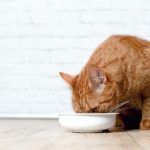Do you ever bury your nose in your cat’s fur and inhale deeply, reveling in their pleasant aroma? If so, you’re not alone. Many cat owners can’t resist the alluring scent of their feline friends, but have you ever stopped to wonder why cats smell so darn good?
In this article, we’ll delve into the mystery of why cats have such an enchanting scent. From their grooming habits to their genetic makeup, we’ll explore the various factors that contribute to a cat’s scent.
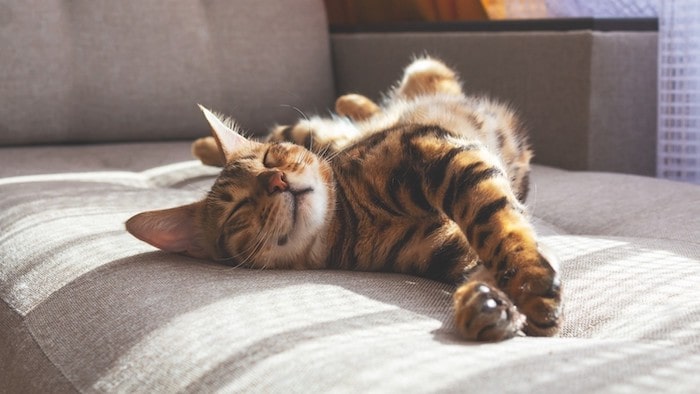
If you’ve ever been told that cats are stinky or that they always smell like their litter boxes, we’ll bust those myths and explain what’s really going on. And of course, we’ll offer practical tips for keeping your cat smelling fresh and clean.
So, whether you’re a longtime cat owner or just a curious animal lover, get ready to discover the fascinating world of feline scent. Trust us, by the end of this article, you’ll be even more enamored with your kitty’s captivating aroma.
The 5 Reasons Why Cats Smell Good
We all know that cats are adorable, playful, and great companions. But did you know that they also have a distinct, delightful scent? Here are five reasons why cats smell good:
- Grooming Habits: Spending up to 50% of their waking hours cleaning themselves, cats are fastidious groomers. Their rough tongues act as a natural brush which removes dirt, debris, and dead skin cells from their fur. This grooming process also helps distribute natural oils throughout the coat giving it a healthy shine and pleasant scent.
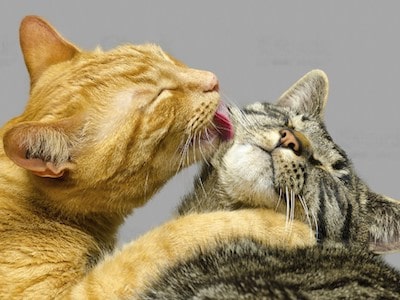
- Diet: The scent of a cat can be affected by their diet. Eating high-quality food that is rich in protein and omega-3 fatty acids will help to keep their skin and coat healthy, resulting in a more pleasant smell. Conversely, if they are fed low-quality or nutrient deficient food this may cause dry fur with an unpleasant odor.
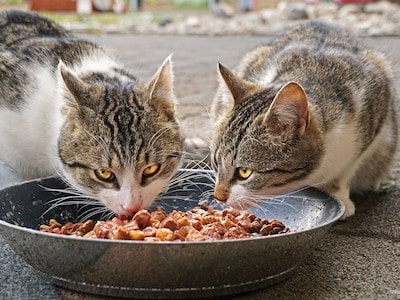
- Breed Differences: Coat types and lengths vary amongst different cat breeds, which can influence their scent. For instance, a short-haired cat with a sleek coat may have a milder odour than one with long fur and abundant fuzz.
- Genetics: Just as humans have unique genetics influencing their physical traits, such as scent, cats can also differ in the strength and pleasantness of their odor.
- Pheromones: Pheromones released from cats’ skin glands contribute to their scent and can be used by them as a method of communication. Additionally, these pheromones may have a calming effect on humans.
How to Keep Your Cat Smelling Good
While cats are naturally clean animals, they still require some help from their owners to maintain a fresh and pleasant scent. There are several ways to keep your cat smelling good, some of them are:
- Grooming your cat regularly with a brush or a comb to remove dirt and loose hair.[1]
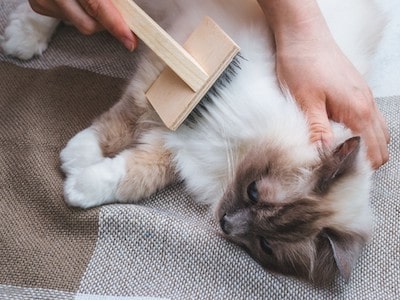
- Checking your cat’s diet and avoiding foods that can cause bad breath or digestive problems.
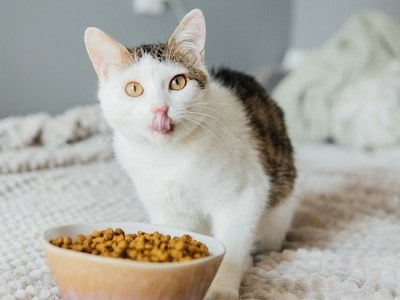
- Cleaning your cat’s teeth with a toothbrush or dental treats to prevent plaque and decay.
- Giving your cat a bath with a mild shampoo designed for cats or making your own natural shampoo with vinegar, dish soap and water.
- Using cat wipes or dry shampoo to freshen up your cat’s coat without water.
- Cleaning the litter box frequently and using odor-absorbing litter or baking soda.[2]
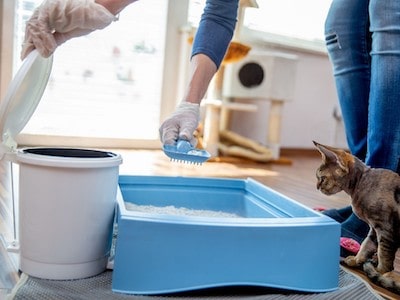
- Cleaning the carpets, furniture and bedding where your cat sleeps or urinates with an enzyme cleaner that can break down the uric acid in cat urine.
- Opening windows and running fans to ventilate your home and remove odors.
FAQs
Do all cats smell good?
While some people may find certain cats to have an unpleasant odor, most cats have a natural scent that’s pleasant and mild. The factors that contribute to a cat’s scent can vary depending on their breed, genetics, grooming habits, and diet.
Why do cats groom themselves so much?
Cats are fastidious groomers and spend up to 50% of their waking hours cleaning themselves. Grooming helps remove dirt, debris, and dead skin cells from their fur and distribute natural oils throughout their coat, which helps maintain a healthy shine and scent.
Do cats release pheromones that contribute to their scent?
Yes, cats release pheromones from their skin glands, which can contribute to their scent. These pheromones serve as a way for cats to communicate with each other and can also have a calming effect on their human companions.
Can a cat’s diet impact their scent?
Yes, a cat’s diet can affect their scent. A high-quality cat food that’s rich in protein and omega-3 fatty acids can promote healthy skin and coat, which can lead to a more pleasant scent. On the other hand, low-quality food or a diet lacking in essential nutrients can result in dry, dull fur and an unpleasant odor.
Well, It’s a Wrap
In conclusion, cats have a natural scent that many people find appealing. Factors such as genetics, breed, grooming habits, and diet can all play a role in a cat’s scent. However, as a cat owner, there are several steps you can take to help maintain your cat’s pleasant scent. Regular grooming, proper nutrition, litter box maintenance, a clean environment, and regular check-ups with the veterinarian are all important in keeping your feline friend smelling fresh and clean. By following these tips, you can enjoy the delightful scent of your cat and enhance the bond you share with them.
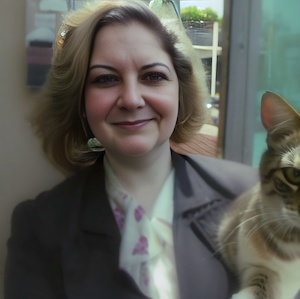
Charlene Pare is the founder of Cat Likes Best. She manages and strategizes the content published on this website. When she isn’t working, she enjoys exploring the city around with her Ameican Shorthair kitty–Moli. Being a technocrat and an avid cat lover, she also writes on pet tech products and some of the featured articles.

